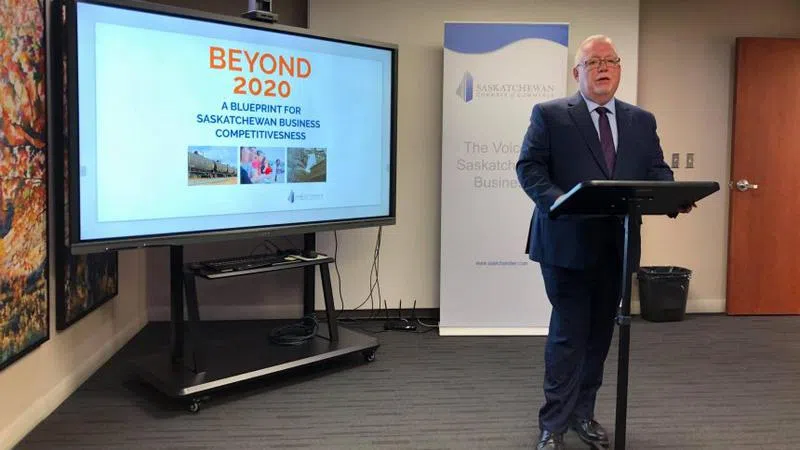
Sask. Chamber of Commerce wants to review entire tax system, HST
The Saskatchewan Chamber of Commerce is looking for ways to simplify taxes for businesses in the province.
In its blueprint to build a competitive business strategy for Saskatchewan, the chamber calls for a review of the entire tax system, provincially and federally. One of the recommendations in the Beyond 2020 report released on Wednesday is to explore the idea of a harmonized sales tax (HST).
“We need to think about it because our federal and provincial tax systems now have really not been reviewed in a very long time,” said CEO Steve McLellan. “Taxes are an impediment to growth. We need to make sure we get the fair value for tax rates but we also need to make sure that we have the right deal for business.”
The federal GST is a value-added tax that allows businesses to claim a credit for GST paid on business inputs, while the PST is a retail sales tax that does not offer the same advantages. The report found that approach is inefficient and warrants reconsideration.


